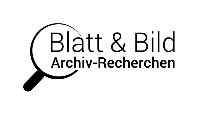Aline Chalufour
Aline Chalufour. The only French female jurist at the Nuremberg International Military Tribunal (IMT)
Aline Chalufour was instrumental in writing historical law. Being a woman however, her work has gone largely unacknowledged. This article is written to celebrate her life, her remarkable achievements and her ground-breaking work.
Aline Chalufour was born in Dieppe, Normandy, in 1899, but brought up in Paris. She studied English at the Sorbonne and after passing her A-Levels, she attended the École Libre des Sciences Politiques - the forerunner of today's Sciences Po. She completed her studies in 1927 with a PhD in law. At the time she was only the sixth woman to ever earn this qualification. However, as a woman at that time in France, she had no access to the post of judge or prosecutor, so she went to the USA and Canada and worked on specialised law publications there. From 1942 to 1944 she worked in Ottawa for the France Libre, under the leadership of Charles de Gaulle.
In June 1944 François de Menthon, the Minister of Justice of the provisional French government, recruited her onto his team of legal experts. In November she became a member of the Service de Recherche des Crimes de Guerre Ennemis. The prosecution of war criminals at the Nuremburg trial was the start of her international juridical career.
In autumn 1945 she arrived in Nuremberg, just prior to the start of the trial on 20th November. Her experience as a jurist and proficiency in English, coupled with years of experience in the North American legal system, ensured she soon became an integral pillar of the French prosecution authority. She not only spoke English perfectly, but was also very familiar with the particularities of the American and British criminal court systems. With this knowledge she was able to bridge the deep socio-cultural and legal divides that existed between the French, British and American prosecutors. As well as her aptitude in bridging cultural divides, she was a major contributor to the charges presented by France against hostage shootings and the Nazi concentration camp system. In doing so, she had laid the foundation for the plea of the French chief prosecutor François Dubost and thereby made it possible for the victim perspective to find its way into the IMT. Only France took witness statements in order to represent the victim’s in Nuremberg. Other countries used only official files and documents.
In April 1946 the French legal system began to open their doors to women and François Dubost strongly recommended Aline Chalufour for a position in the French court system. For her extraordinary achievement at Nuremburg however, Aline Chalufour received only limited and modest recognition.
After the end of the IMT Aline Chalufour stayed in Germany. With her experience at Nuremberg in prosecuting Nazi war criminals, she was best placed to represent France in the first Ravensbrück trial. Ravensbruck was a concentration camp built solely for women. This trial was conducted by the British military government in Hamburg, between December 1946 and February 1947.
After the Ravensbruck trial she remained in Germany for another next two years. She held the position of head of the French department of the Nuremberg trial documents. She was essentially an office administrator. As usual she was able to ease personal tensions and bridge the socio-cultural divides that still existed between the French and American representatives.
In 1949 she left Germany and joined the French judicial service, but was only offered the position of judge in the juvenile courts. This was considered a ‘traditional women's’ position and did not reflect her qualifications or previous achievements as prosecutor for the international trials of war criminals. Unsurprisingly, she did not feel comfortable in her role presiding over young offenders and she also frequently disagreed with her superiors, so in December 1966 she resigned her position and retired to her native Dieppe.
Alongside being one of the most influential jurists and Nazi investigators Aline Chalufour translated Etta Shiber's memoirs into French. In her book, Etta Shiber describes the construction of an entire escape line for British pilots captured in France. The line was masterminded by her good friend Kate Bonnefous, in the summer of 1940. Organising ‘a line’ was an elaborate and potentially dangerous task which involved breaking the men out of the prison camp, organising the many safe houses needed along the route and scores of people (often women) who escorted the men out of France.
The memoirs were first published in the USA, in 1943 under the title Paris Underground and received high acclaim across the country. The translation was published in France in 1946, under the title Femmes Traquées (Hunted Women). Saluting the activities of women during the French Resistance, this book was one of the first of its kind, but since the mid 1940s it has been largely overlooked by historians and is now more or less confined to the archives.
In 1976 the French daily newspaper Le Monde published an article written by Aline Chalufour on the 30th anniversary of the Nuremberg International Military Trial.
Aline Chalufour lived until her early 90s, but the date of her death remains unknown.
Her story has never been given the recognition she deserves by history.

